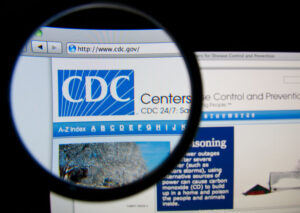The CDC Eviction Ban

The CDC eviction ban places was spurred by President, Donald Trump, who, August 8, 2020, signed Executive Order No. 13945, directing various U.S. governmental agencies, including the Centers for Disease Control and Prevention (CDC), to consider whether residential evictions should be banned as a way to control the spread of COVID-19.
On September 1, 2020, taking its cue from the executive order, the CDC filed with the federal register a 37 page order entitled, “Temporary Halt in Residential Evictions to Prevent the Further Spread of COVID-19”. Hardly “temporary”, the order (CDC eviction ban) is effective September 4, 2020 through December 31, 2020, and is on top of state and local eviction bans that have already been in place for months. Violators of the CDC eviction ban can be fined up to $100,000.00 and/or jailed up to one year if the violation does not result in a death, or fined up to $250,000.00 and/or jailed up to one year if the violation results in a death.
Covered Person
The CDC eviction ban provides that no owner of residential property shall evict any “covered person” from any residential property in any state or U.S. territory in which there are documented cases of COVID-19. (According to the CDC, only American Samoa has no COVID-19 cases.) The order defines eviction as “any action” by or on behalf of an owner of residential property to remove a covered person from the owner’s property. Although the order does not say so, “any action” would likely be construed by courts as including the filing of a lawsuit for eviction. The order defines a “covered person” as a tenant of residential property, who provides to his or her landlord a written statement, signed under penalty of perjury, declaring that the tenant, among other things: (a) has used best efforts to obtain governmental assistance to pay rent; (b) either (i) expects to earn no more than $99,000.00 in income during 2020, or no more than $198,000.00 if will file a joint 2020 tax return, (ii) was not required to report income to the IRS in 2019, or (iii) received a stimulus check in 2020 under the CARES Act; (c) is unable to pay full rent because of a loss of income or because of extraordinary medical expenses; (d) is making his or her best efforts to pay partial rent owed, taking into account the person’s other nondiscretionary expenses; and, (e) if evicted, would likely be required to reside in a homeless shelter, become homeless, or be forced to live in close quarters with others.
The CDC eviction ban does not prohibit a landlord from evicting a residential tenant because of (a) criminal activity on the premises, (b) damage to the property, (c) a health and safety ordinance violation related to the property, or (d) any lease violation other than the non-payment of rent, penalties, or late fees. However, the CDC eviction ban does not replace more stringent state or local eviction bans.
Legal Challenge
The CDC eviction ban clearly states that it does not relieve a tenant from any payment obligation under the lease, including the obligation to pay rent, penalties, and interest. This language is not included to put landlords at ease. It’s there to make it harder for landlords to succeed in any lawsuit against the government for violations of the Takings Clause or the Contracts Clause of the U.S. Constitution. The CDC order is also crafted to avoid claims of due process deprivations by asserting that under the exigent circumstances of the pandemic, the CDC was not required to adhere to the rule making requirements of the federal Administrative Procedures Act, which typically mandates either a formal evidentiary hearing or an informal notice and public comment period before enacting a new agency rule.
Landlords have already challenged in court similar state and local orders enacted in New York, Connecticut, and Maryland. The claims of the landlords in each of those cases, which included assertions of numerous constitutional violations, went down in flames. Landlords will likely also challenge the CDC eviction ban. How that might turn out is an open question.
This article is for informational purposes only. It is not intended as legal advice. If you have questions about how the CDC eviction ban or any other COVID-19 related restriction might affect you, then please contact your attorney or this law firm.
Sewell Law provides legal services in the areas of business and real estate litigation. Please contact Michael Sewell at (314) 942-3232 or at michael@sewelllaw.net to discuss this or any other legal matter.
The choice of a lawyer is an important decision and should not be based solely upon advertisements.
© 2020 Sewell Law, LC


